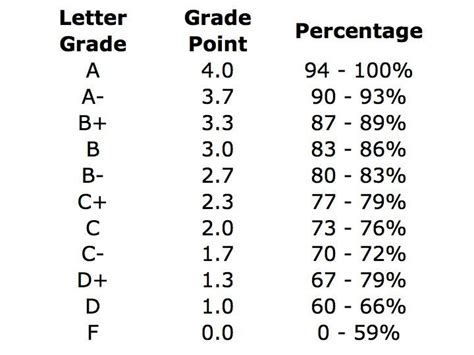Every high school student’s academic journey begins with the foundational year of 9th grade. Establishing a strong academic standing from the get-go is crucial for college admissions, scholarship opportunities, and future career success. The average GPA for 9th grade students plays a pivotal role in shaping their trajectory for the remainder of their high school years.

Understanding the Importance of GPA
Grade point average (GPA) serves as a numerical representation of a student’s academic performance. It is calculated by taking the average of all letter grades earned in a given set of courses. In most schools, GPA is measured on a 4.0 scale, where A equates to 4.0, B to 3.0, C to 2.0, D to 1.0, and F to 0.0.
The average GPA for 9th grade students provides a snapshot of their overall academic progress and preparedness for higher-level courses. It is often used by colleges and universities to assess a student’s readiness for further academic pursuits.
National Average GPA for 9th Graders
According to data published by the National Center for Education Statistics (NCES), the average GPA for 9th grade students in the United States is 2.95. This figure represents the overall average GPA across all public and private high schools in the country.
The NCES data also reveals that there is some variation in the average GPA for 9th grade students across different demographics:
- Female students: 3.08
- Male students: 2.82
- White students: 3.12
- Black students: 2.74
- Hispanic students: 2.80
- Asian students: 3.43
Factors Influencing GPA
A student’s GPA is influenced by a multitude of factors, including:
- Course rigor: The difficulty level of the courses a student takes directly impacts their GPA. Students who enroll in more challenging courses, such as honors or Advanced Placement (AP) courses, tend to have higher GPAs.
- Study habits: Effective study habits and time management skills are essential for maintaining a high GPA. Students who dedicate sufficient time to studying and organizing their learning materials typically perform better academically.
- Motivation and engagement: Students who are intrinsically motivated to learn and actively engaged in their classes are more likely to achieve higher grades.
- Teacher support: The quality of instruction and support provided by teachers can have a significant impact on a student’s GPA.
- Family involvement: Parents and guardians who actively support their children’s education and provide a positive learning environment can positively influence a student’s GPA.
Tips to Improve GPA
Improving one’s GPA requires a combination of effort, determination, and effective strategies:
- Set realistic goals: Break down large assignments into smaller, manageable tasks to avoid feeling overwhelmed.
- Create a study schedule: Establish a consistent study schedule that works with your lifestyle and stick to it.
- Seek help when needed: Don’t hesitate to ask for help from teachers, classmates, or tutors if you struggle with a particular subject or topic.
- Take advantage of extra resources: Utilize resources offered by your school, such as academic support programs or tutoring sessions.
- Review and revise: Regularly review your notes and materials to reinforce learning and improve comprehension.
- Practice active learning: Participate in class discussions, ask questions, and engage in problem-solving exercises to actively participate in your own learning.
Conclusion
The average GPA for 9th grade students provides a valuable benchmark for assessing academic progress and preparedness for future academic endeavors. By understanding the factors that influence GPA and implementing strategies to improve it, students can lay a solid foundation for success in high school and beyond. Remember, a high GPA is not merely a number but a testament to your dedication, perseverance, and passion for learning.
